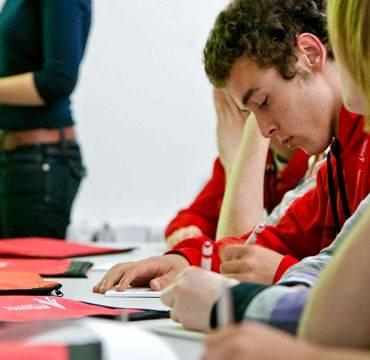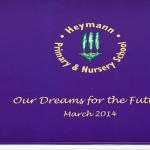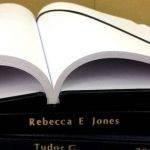What Will You Study
Our English Literature degree provides a thorough grounding in a wide range of authors, genres, historical periods, literary movements, techniques and critical approaches. We use cutting-edge approaches to literary study, and allow you to specialise in genres and periods that particularly appeal to you.
In your first and second years, mandatory courses include Introduction to English Literature and The Theory and Practice of Criticism; optional courses include World Literature, Renaissance to Restoration Literature, Romantic Literature, Victorian Literature, Literature and Film, and American Literature to 1900. Third-year English courses range from medieval to contemporary literature. We offer a wide variety of full- and half-year modules addressing an array of topics, authors, theories, contexts, and media. In your final year you’ll also choose the materials, issues and themes you’d like to explore in greater depth by writing a Dissertation on a topic that particularly appeals to you.
Related Courses
Modules
Many of Lancaster’s degree programmes are flexible, offering students the opportunity to cover a wide selection of subject areas to complement their main specialism. You will be able to study a range of modules, some examples of which are listed below.
Year 1
Year 3
Lancaster University offers a range of programmes, some of which follow a structured study programme, and others which offer the chance for you to devise a more flexible programme. We divide academic study into two sections – Part 1 (Year 1) and Part 2 (Year 2, 3 and sometimes 4). For most programmes Part 1 requires you to study 120 credits spread over at least three modules which, depending upon your programme, will be drawn from one, two or three different academic subjects.
A higher degree of specialisation then develops in subsequent years. For more information about our teaching methods at Lancaster visit our Teaching and Learning section.
Information contained on the website with respect to modules is correct at the time of publication, but changes may be necessary, for example as a result of student feedback, Professional Statutory and Regulatory Bodies’ (PSRB) requirements, staff changes, and new research.
Entry Criteria
A Level AAA-AAB including A in English Literature or English Language and Literature
International Baccalaureate 36-35 points overall with 16 points from the best 3 Higher Level subjects including 6 in a Higher Level Literature subject
BTEC Considered alongside A level English Literature or English Language and Literature
Access to HE Diploma in a relevant subject including Distinctions in the majority of units
Other Qualifications We welcome applications from students with other internationally recognised qualifications. For more information please visit the international qualifications webpage or contact the Undergraduate Admissions Office directly.
Literature based subject at Advanced/Higher Level
IELTS 6.5 (with at least 5.5 in each component)
General Studies Offers normally include General Studies if it is taken as a fourth A level
Combination of Qualifications Applications from students with a combination of qualifications are welcomed, for further advice please contact the Undergraduate Admissions Office directly.

Taking a gap year Applications for deferred entry welcomed
Contact Undergraduate Admissions Office + 44 1524 592028 or via ugadmissions@lancaster.ac.uk
Careers
Many of our graduates have gone on to successful postgraduate study and careers in professional fields such as publishing, journalism, writing, television and the media, teaching, and librarianship.
Our Creative Writing graduates have published their own stories, novels, and poems with major publishers and have had their scripts produced in national festivals and on national radio. The transferable skills you gain on this degree communication, self-expression, research and critical understanding also open up a wide range of business and public-sector roles in areas such as marketing, advertising, law, social work and professional services. A sizeable proportion of our graduates take up employment overseas. Other graduates go onto further study, not only in English and Creative Writing, but also in Journalism, Publishing, Law, Public Relations and Business. Recent graduates have gone on to train as speech therapists, teachers of English in the UK and overseas, computer programmers and consultants, videogame storywriters, bankers, chartered accountants, personnel managers and social workers.
Lancaster University is dedicated to ensuring you not only gain a highly reputable degree, but that you also graduate with relevant life and work based skills. We are unique in that every student is eligible to participate in The Lancaster Award which offers you the opportunity to complete key activities such as work experience, employability/career development, campus community and social development. Visit our Employability section for full details.
Studying
Teaching and Learning Methods
At Lancaster we offer a broad range of learning environments designed to best support the requirements of your chosen degree programme. These may include lecture and tutorials, interactive workshops, laboratory sessions, other practical activities, student-led seminars and web-based delivery.
The modules which make up a programme of study are assessed using a variety of different methods, enabling students to demonstrate their capabilities in a range of ways. Typical coursework assignments include laboratory reports, essays, literature reviews, short tests, short and sharply focused critical reports, poster sessions and oral presentations. Formal examinations include short answer questions, essays and data analysis. Multiple choice formats are also employed where appropriate. Students are supported in the production of final year project reports and dissertations. Details of the assessment methods for individual modules can be accessed via the university’s online module catalogue. In addition to these learning and teaching methods we encourage independent study, meaning you take responsibility for your own learning. For more information visit our Teaching Approach page.
Assessment Methods
We offer you a variety of stimulating and effective approaches to teaching, learning and assessment. This enables you and your tutors to explore the very latest thinking within your subject and develops your skills in problem solving, analysis and critical reflection, communication, application of knowledge and modern technologies.
As a University, we commit to providing all our undergraduates with a minimum number of contact hours per week, providing you with timely feedback on your work and a maximum number of 15 students per seminar group.
Fees
We set our fees on an annual basis and the 2017-18 entry fees have not yet been set.
As a guide, our fees in 2016 were:





 Thesis and dissertation accomplished online program
Thesis and dissertation accomplished online program University of chester dissertation binding
University of chester dissertation binding Dissertation online rwth aachen jobs
Dissertation online rwth aachen jobs Walden dissertation timeline for university
Walden dissertation timeline for university Nicolas bouvier lusage du monde dissertation proposal
Nicolas bouvier lusage du monde dissertation proposal






